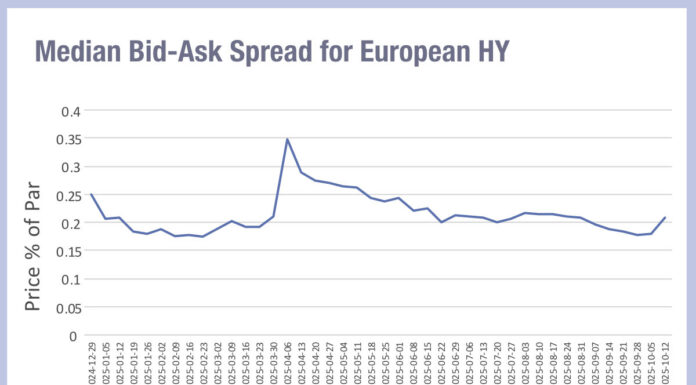Jeremy Hunt, Chancellor of the Exchequer, has set out the UK’s plan for regaining its initiative in capital markets at his Mansion House Speech. Starting with defined contribution (DC) pension schemes, he noted that in the UK they currently invest under 1% in unlisted equity, compared to between 5 and 6% in Australia.
“Today I am pleased to announce that the Lord Mayor and I joined the CEOs of many of our largest DC pension schemes – namely Aviva, Scottish Widows, L&G, Aegon, Phoenix, Nest, Smart Pension, M&G & Mercer – for the formal signing of the “Mansion House Compact”. The Compact commits these DC funds, which represent over two-thirds of the UK’s entire DC workplace market, to the objective of allocating at least 5% of their default funds to unlisted equities by 2030. This could unlock up to £50bn of investment into high growth companies by that time if the rest of the UK’s DC market follows suit.”
There will also be a consultation to double current local government pension scheme allocations in private equity to 10%, which Hunt noted could unlock “a further £25 billion by 2030”, with a planned consolidation of local government pension scheme assets, into pools with assets under management of £50 billion of assets or more, with a deadline of March 2025.
The government will also facilitate a programme of DC consolidation, giving funds greater scale in order to maintain a diverse portfolio of bonds, equity and unlisted assets in order to deliver better returns for savers.
A series of consultations and position papers will be launched to try and shape the pensions industry into being more responsible, larger in scale and better able to access markets.
“For an average earner who starts saving at 18, these measures could increase the size of their pension pot by 12% over their career – that’s worth over £1,000 more a year in retirement. At the same time this package has the potential to unlock an additional £75bn of financing for growth by 2030, finally addressing the shortage of scale up capital holding back so many of our most promising companies.”
The UK’s stock market saw a 44% decline in the number of domestic listed companies in the UK between 1997 and 2019, Hunt noted, while the US and France saw even steeper falls.
“I want the world’s fastest growing companies to grow and list right here, making LSE more than Europe’s NASDAQ,” he said, “As David Schwimmer and Julia Hoggett say, we want it to be the global capital for capital. So today we are publishing draft legislation on prospectus reforms, delivering another milestone of Lord Hill’s UK Listing Review. This will create a more effective regime than its EU predecessor, giving companies more flexibility to raise even larger sums from investors more quickly.
He namechecked Rachel Kent’s Investment Research Review published today, as a guide to his policy. It recommended:
• Establish a research platform that will provide a central facility for the promotion, sourcing and dissemination of research – in particular, in relation to smaller companies. Such a central facility can learn from and develop initiatives undertaken in other financial centres. It should be designed to support the production of research on all publicly traded companies. This should lead to improved research coverage and, ideally therefore, greater market interest in smaller cap companies and liquidity in their shares. The key concern in establishing such a facility is for adequate and sustained funding to be provided and the key outcome is that the facility would encourage wider investor interest in the participating companies. Separately, there should be a code of conduct for issuer-sponsored research.
• Amend regulations governing how investment research is paid for, to allow clients and their managers greater choice. Greater optionality should remove current frictions over investment research charges. By introducing additional optionality in how investment research is paid for, the UK will remain aligned with other key jurisdictions (in particular the US and EU) and not be at a competitive disadvantage. In any event, any barriers that prevent UK buy-side firms from paying for investment research in other jurisdictions where payment on a bundled basis is standard practice in that jurisdiction should be removed.
• Review the current complex and difficult to navigate regulatory regime related to investment research, to make it more streamlined and efficient. A bespoke regime for the provision of investment research would be ideal. Retail investors represent a material element of liquidity, especially in the smaller cap market, but there is an asymmetry in the research available to retail and institutional investors. I recommend that the regulations relating to access good quality investment research be reviewed to facilitate the provision of research to retail investors. At present, without access to the same research as institutional investors, too many retail investors rely on information sources such as chat rooms.
• Harness the knowledge and experience within our universities to assist in the provision of research on innovative companies and sectors and to help train the next generation of research analysts.
Hunt said the FCA was committed to engage with the market to inform any rule changes on removing the requirement to unbundle research costs by the first half of next year.
“This will ensure we are better able to fund quality research into the new Silicon Valley sectors,” he said.
In a step which he described as putting the UK at forefront of “innovative capital raising” he also announced that before the end of 2024, the government would establish a pioneering new ‘intermittent trading venue’ that will improve private companies access to capital before they publicly list.
As part of the Brexit process, he said the government would be commencing a repeal of almost 100 pieces “of unnecessary retained EU law, further simplifying our rulebook while retaining our high regulatory standards. Alongside this, last month I was delighted to sign the new UK-EU financial services MOU as we build a new relationship with our European partners. We are working closely with the Bank of England to reflect on lessons from recent events to ensure the UK has the best possible arrangements in place to improve continuity of access to deposits when a bank fails even if it is not a systemically important one.”
In response to the UK Government’s publication of its Investment Research Review, including the announcement that it will reverse the EU MiFID II ban on free research for clients, Adam Farkas, CEO of the Association for Financial Markets in Europe (AFME) said, “AFME members are supportive of the UK Government’s approach to the provision of investment research which allows for more flexibility in that clients will have the option to choose how they pay for the research they consume, whether bundled or unbundled, by removing the requirement on market participants to unbundle which is currently contained in the EU’s MIFID II legislation. It should also be noted that the investment research market is inherently international and further changes to the UK’s regulatory and legislative environment in this area should prioritise, where possible, alignment with other jurisdictions.
It should also provide a level playing field for both UK providers and consumers of research competing with international counterparts. AFME notes that similar themes are being addressed in ongoing discussions by other policymakers, and it is important for the respective UK initiatives to take account of developments in other jurisdictions such as the US and EU.”
Primary research by The DESK’s sister publication, Best Execution, found that there was no correlation between unbundling and a decline in activity for small to mid-cap stocks.
Farkas concurred, “From our own analysis, AFME has found no evidence to support a causal link between the introduction of the unbundling rules and the pre-existing declining trend in SME research coverage. Among the numerous surveys and reports AFME has conducted on this topic, no respondents have identified the unbundling regime as a causal factor in declining SME coverage.”
In a statement the Financial Conduct Authority (FCA) said, “We welcome the Chancellor’s Mansion House speech and will work closely with the Treasury to support the proposals announced by the Chancellor. The FCA will carefully consider Rachel Kent’s report and its recommendations, in line with our objectives. We will start engaging immediately with market participants. This engagement will inform the content of any consultation proposals. Subject to that feedback, we intend to consult on an accelerated timetable on potential regulatory changes that could introduce more options on how to pay for investment research so as to achieve an outcome of improving investor research into markets while providing value for money to institutional and retail investors.”
It continued, “The FCA will also take feedback from the market on the timing of any rule changes, driven by market need and firms’ operational capacity to absorb changes. Subject to this detailed consultation feedback and FCA Board approval, we will aim to make relevant rules in H1 2024. Pending any regulatory reform, we are open to consider swift actions, if needed, to support firms impacted by changes to regulation in other jurisdictions, based on discussion with individual firms or parts of the market.”
©Markets Media Europe 2023
©Markets Media Europe 2025














